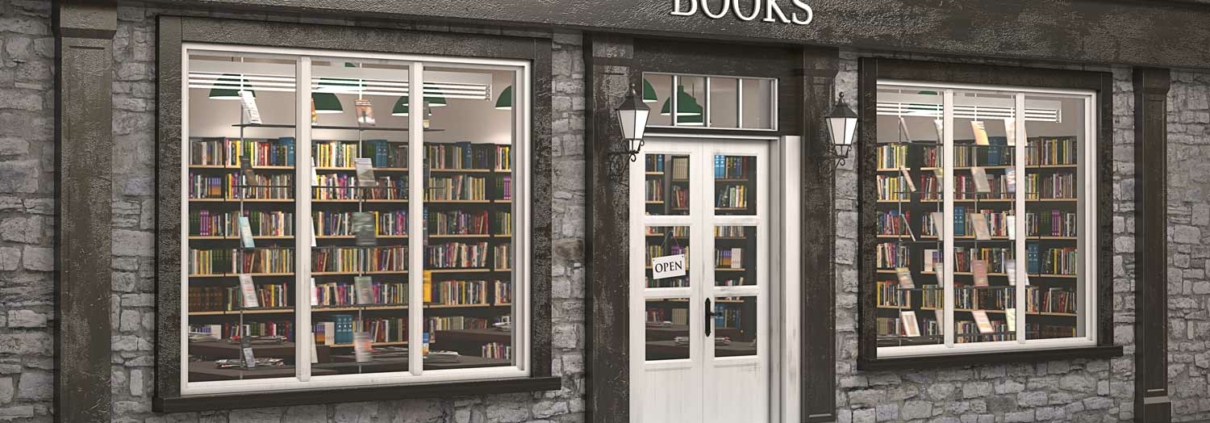Building A Business In The Online Space – Part IV

Building A Business In The Online Space – Part IV – Retail Sales and Franchises
In this series of articles, I am introducing new ways on the internet to work when your job will get blown away through the disruption announced.
I, first of all, write about the current mindset most of us carry around with us and the options we think we have to then dive into the new world setup.
My ideas and statements are driven by real-life experiences, applicable to different situations and industries. They are not just theoretical constructs but lead to empirical theories that can be substantiated by statistics and common methods.
In this third part, I focused on Service Providers and Agencies in the free market.
In Part III, I identified 4 major requirements for building a sustainable business:
- Good products with good revenue.
- A big market interested in the product, where you can attract your niche.
- A plan.
- A sales strategy
Here I add ACTION.
What are the products you could sell? What is your target Market? What is your plan? What is your sales strategy?
Retail Stores
We all know it by now. The classical company model of a reseller with a warehouse and a store is going to die.
Sales have shifted into the online world. Some producers are distributing their products directly through their online shops, others use the infrastructure of Amazon.
Black Friday of 2018 was a turning point of the economy where more sales have been handled online than in the offline world.
Retail stores have to change their strategy completely, shifting from a sales store to a place where the brand can be experienced.
If you wanted to start a store in the past you had to be able to invest quite a big sum of money.
You had to cover the following and maybe a lot more to just start running a store.
- Renting a store
- Renting space to store the goods you wanted to sell
- Travel to meet the producer
- Transportation of goods
- Workforce
- Administration
- Infrastructure
- Marketing
- Lawyers
…
Without an investment or a rich family behind, it was very challenging to just startup.
At the time, importing and exporting goods was a lot riskier and challenging, so most products were produced in the country where they got sold finally. Born in Switzerland and living here in Zürich I dreamt about having access to the US market to sell products when I was in my 20s and finally this is the case. It is even better as the doors are open to any market in the world.
Our entire consumption economy is built on retail stores so there is a big variety of challenges and options to be considered in detail when you wanted to build a store. As I do not have a retail background I will not go into details of this topic but over a long period of time, this business model was very important and worked well for many companies.
A topic I do want to touch is margins.
To pay the operating costs of the retail store business, it had to earn quite high margins on the sale of a product. This made products expensive in the past but also provided work for many people along the entire value chain. It somehow dictated the price and better negotiation in the sourcing process of the product could be a game changer to position against a competitor.
Especially in Switzerland, where costs for space and workforce have always been high, this was a substantial factor of the price.
Franchises
A franchise is a special company form or business model and it never attracted me for several reasons.
A brand like Mc Donalds dictates how any store or restaurant should look like. It is a copy clone.
I never liked the copy character of it as it is against my inner desire for creativity.
The big benefit of a franchise in the past was the lower costs to startup and run the business. As a franchise owner, you profit by not being responsible for certain things that are dictated by the brand. In several cases of restaurants, stores and gas stations, the owner is just responsible for the rent of the location and goods to be sold. In comparison to a retail store, this business model was always a lot more affordable and less challenging to run.
MLM
To complete the picture I add 1 more business model used in the past.
It is the concept of Multi-Level Marketing or MLM and it is actually still around.
MLM constructs have gained a very bad reputation in the past, as they have mostly been misused to build fraudulent constructs by selling hot air.
The construct was/is mostly used in network marketing and by building up teams. In the team structure, a hierarchy of earnings gets established.
The construct has several problems by construction and at a certain critical size, it just implodes.
At its extreme, an MLM construct does not sell any valuable good.
The client pays a fee to be part of a sales team. By paying the fee he generates the salary of the person positioned one level higher and the concept goes on up to the top to mainly make the initiator rich. When it blows up, the last level of individuals who had no chance to sell just lost their money.
At a certain level of fame of these constructs, they tended to grow exponentially. At a certain size and when growing at a certain speed, the education of those selling the product can’t be handled anymore.
What I describe is a fraud by construction and it is not allowed anymore in most countries where regulations exist.
The construct as such survived. Nowadays such network marketing constructs try to justify for not being a network marketing product and in most social media platforms it is prohibited to market them for good reasons, so they keep running coffee parties and bus tours.
Identifying these MLM and network marketing constructs is not so difficult. They tend to provide complicated and mysterious compensation structures and mix several businesses together. They declare it as a win-win situation for everyone (but for the looser) …
Conclusions
These are mainly the business models and constructs available in the old world and I wrote them down because they are the basis for developing new models in the digital economy. There is no need to reinvent the wheel. In the ancient cultures, it was wooden, now it is high tech but it is still a wheel!
Other possibilities to earn money are investment bets like stocks and real estate as well as speculations like bets on horse races. I don’t like bets and I am not attached to gaming so I will not write about this part of our economy, even if I know it is a big market. It actually mostly is nothing else than what happens in a service industry or within digital products in case of online games.
What would you add to the list of business models in the old world? Did I miss an industry or sector that works completely different?
Just leave a comment!
Stepping into a digital world
After writing down this profile of business opportunities in the old world setup I will now unwind the current environment with challenges and possibilities.
Stay tuned …




Leave a Reply
Want to join the discussion?Feel free to contribute!